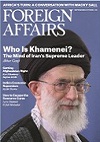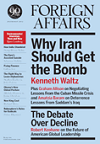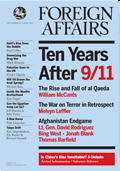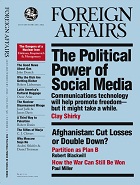The Limits of COIN Doctrine in Afghanistan
The U.S. needs rethink its tendency to blindly follow the 'COIN' doctrine.
 Courtesy: Foreign Affairs
Courtesy: Foreign Affairs
The U.S. needs rethink its tendency to blindly follow the 'COIN' doctrine.
 Courtesy: Foreign Affairs
Courtesy: Foreign Affairs
A decade ago, the U.S. immersed itself in the greater Middle East with its wars on Afghanistan and Iraq. Will the current economic scenario force it to turn away from this region?
 Courtesy:
Courtesy:
Overall, the U.S.-Pakistan alliance hasn't been pleasant. Despite their growing mutual distrust for each other, which has become evident in the past few years, the alliance still continues. Is it worth all the troubles it comes with?
 Courtesy: Foreign Affairs
Courtesy: Foreign Affairs
To leave behind a stable government in Afghanistan in 2014, the U.S. needs to work towards electoral reforms, negotiations with the Taliban, and a regional settlement involving Pakistan.
 Courtesy: Foreign Affairs
Courtesy: Foreign Affairs
In 2001, fearing ethnic strife, the international community pushed for a strong central government in Kabul. But such fears fostered a system of regional and ethnic patronage. To correct matters, the U.S. should de-emphasize Afghanistan’s ethnic fault lines and push for more devolved and inclusive governance.
 Courtesy:
Courtesy:
There are no easy or cost-free ways to escape the current quagmire in Afghanistan. Although it has problems, a de facto partition of Afghanistan, in which Washington pursues nation building in the north and counter terrorism in the south, offers an acceptable fallback.